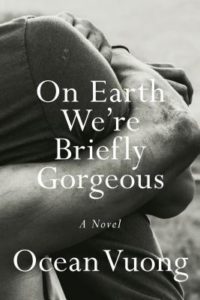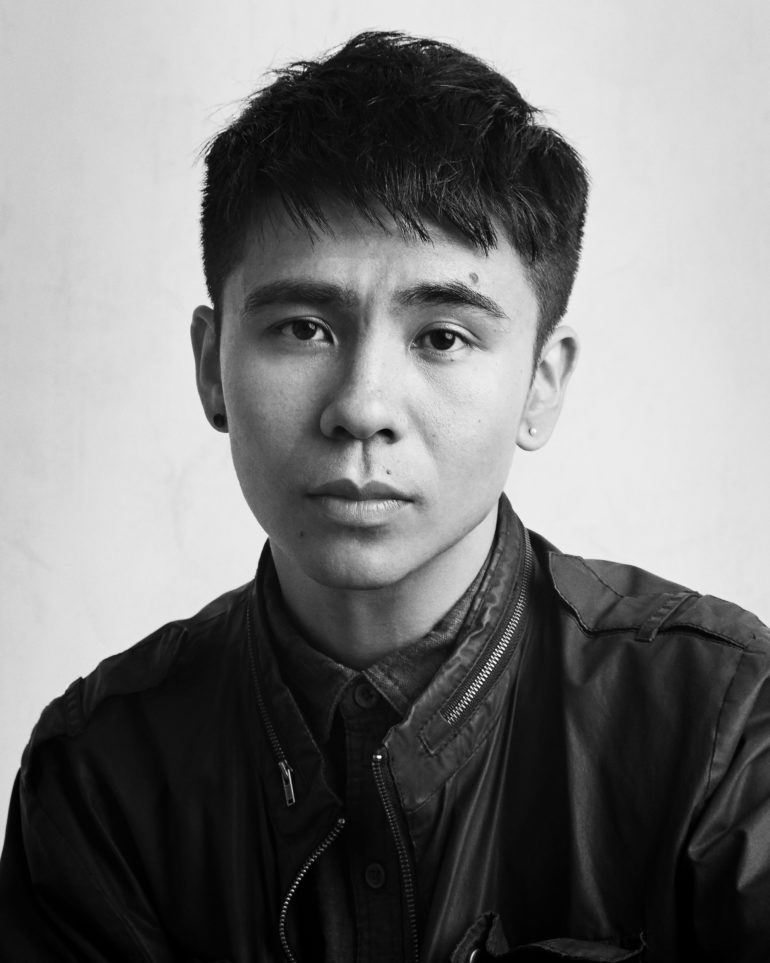INTERVIEW SARAH Wetzlmayr
Wer dieser Tage Abstand hält, bekundet dadurch gleichzeitig Nähe und Solidarität. Die Coronakrise trägt also tagtäglich zu einer Neudefinition von Intimität und Verbundenheit bei. Für den in Saigon geborenen Autor Ocean Vuong, dessen Debütroman On Earth We Were Briefly Gorgeous als literarisches Highlight des vergangenen Jahres gefeiert wurde, spielt das Ausloten von Näheverhältnissen eine ganz besondere Rolle. Wir haben mit ihm über die Bedeutung von Kunst in Krisenzeiten gesprochen.
Chapter With the coronavirus crisis we are experiencing a form of chaos that most people have never experienced before. Nobody knows how the world is going to look after the crisis and there is nobody who can pin down the exact moment when this is going to be over. How do you deal with this state of not knowing?
Ocean Vuong I think, for a writer, not knowing is part of the creative practice. But of course, the stakes are smaller in writing books because, if you don’t know, you can push away from the desk and go back to your life—and the questions will be waiting for you when you’re ready. When it comes to a more global danger like this pandemic, not knowing can be crippling—all consuming. Whereas you can turn to the world when your writing is weighted with doubt, you can’t (at least I can’t) turn to your writing when the world is falling apart. So I don’t know if I »deal« with it so much as I’m consumed by it, I am inside it. On good days, I use the time to improve the parts of myself my professional life has ignored: fixing my little home, working in the garden, yoga, trying to have more fruitful conversations with friends and family, building a more disciplined practice of meditation, etc.
Chapter As museums, theaters, galleries and cinemas were closed, there is only very limited access to art at the moment. Luckily, it is still possible to read books. How would you describe the role of art – and of literature in particular – in these times of disorientation?
Ocean Vuong I think art can always be helpful as a mediator for a richer, more examined life. But there is something about catastrophe that beckons us closer to art, especially to poetry. I remember there being a huge surge in reading and writing poems after the 9/11 attacks here in the US—and again after Trump’s election and the collective horror that swept through the country. The product of the catastrophe (not the catastrophe itself) might be a good thing in that it brings us back to what Heidegger called Dasein, the awareness of our relation to death which can help recalibrate our values away from the petty events and feelings that fog our days. Literature, at its best, can be an agent towards that end. Maybe that’s why so many novels are interested in the themes of time and dying.
Chapter Is writing your major tool to »restructure« whenever you feel disoriented? If the answer is yes, which form or genre do you usually go for?
Ocean Vuong No, writing is chaos—at best a »controlled« chaos. I restructure by taking a bath with mint oil.
Chapter In On Earth We’re Briefly Gorgeous Little Dog says, »I am writing you from inside a body that used to be yours. Which is to say, I am writing as a son.« I think that this special relationship between proximity (intimacy) and distance runs beautifully through the whole novel. The way we feel about proximity and distance is also challenged at the moment. How do you feel about it?
Ocean Vuong I think proximity is the central site of meaning, both in art and in life. There is not always a clear, linear story, but by standing side by side, we see and feel the tensions that charge our lives, both with history and the present. We are, to borrow from chemistry, elements that have our own unique electrical charge and, like the elements, a chemical reaction occurs when we come closer to each other, both mentally and physically—perhaps even spiritually. That’s what I seek in my work: to create those charges, regardless of whether there is a larger form or not—it’s the friction that comes out of proximity that matters most to me, in the way the word »mother« changes when you place it before the word »tongue«.
Chapter What I also loved about the novel was that – despite everything that happens – your characters act and talk with a subtle but steady optimism. There is always a sense of hope. Does that resemble your own way to look at things? Are you an optimistic person?
Ocean Vuong I’m careful to cast hope as a product of failure—as opposed to a reckless, ahistorical hope we often see in religious or state propaganda. I think hope has to be earned, it has to situate as the final outcome of near-impossible ramifications. In this sense, one could say it takes an entire novel to see if hope is even worth it—or possible. I think the novel is, at its heart, an experiment in whether hope even makes sense. I’m optimistic, yes, but not because I always have hope—but because I think the possession of hope is always possible, within reach even if not promised. Hope would lose its power if it was inevitable. The very nature of its ephemerality amplifies our desire to make it true.

OCEAN VUONG
ON EARTH WE’RE BRIEFLY GORGEOUS
Hardcover | $26.00
Published by Penguin Press
Jun 04, 2019 | 256 Pages | ISBN 9780525562023

